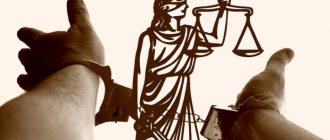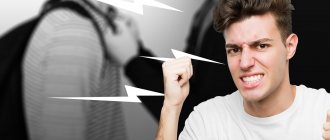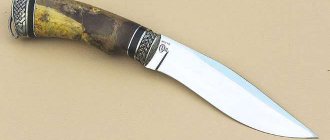ST 258 of the Criminal Code of the Russian Federation.
1. Illegal hunting, if this act is committed:
a) causing major damage;
b) using a mechanical vehicle or aircraft, explosives, gases or other methods of mass destruction of birds and animals;
c) in relation to birds and animals, hunting of which is completely prohibited;
d) in a specially protected natural area or in a zone of environmental disaster or in a zone of environmental emergency, -
shall be punishable by a fine in the amount of up to five hundred thousand rubles, or in the amount of the wages or other income of the convicted person for a period of up to two years, or by correctional labor for a term of up to two years, or by imprisonment for a term of up to two years.
2. The same act, committed by a person using his official position, or by a group of persons by prior conspiracy or by an organized group, or which caused especially large damage, -
shall be punishable by a fine in the amount of five hundred thousand to one million rubles, or in the amount of the wages or other income of the convicted person for a period of three to five years, or by imprisonment for a term of three to five years, with deprivation of the right to hold certain positions or engage in certain activities for a term of up to three years or without it.
Note. In this article, large damage is recognized as damage calculated according to the rates and methodology approved by the Government of the Russian Federation, exceeding forty thousand rubles, especially large - one hundred twenty thousand rubles.
Commentary to Art. 258 Criminal Code
1. The subject of the crime is wild animals (animals and birds) living in a state of natural freedom, as well as those released into the wild (into hunting grounds) for breeding purposes.
Taking possession of domestic animals, as well as wild animals or birds located in nurseries or enclosures is subject to qualification as theft of someone else's property.
Illegal hunting of birds and animals included in the List of especially valuable wild animals and aquatic biological resources belonging to species listed in the Red Book of the Russian Federation and (or) protected by international treaties of the Russian Federation should be qualified under Art. 258.1 CC.
2. The objective side of the crime is expressed in illegal hunting. Hunting is recognized as such actions as tracking for the purpose of prey, pursuit and the actual production of wild birds and animals.
Signs of illegality are hunting without appropriate permission or contrary to a special ban, or by a person who does not have the right to hunt or who received a license without the necessary grounds, or carried out outside designated areas, at prohibited times, using prohibited tools and methods.
3. The crime provided for in paragraph “a” of Part 1 of Art. 258 of the Criminal Code, ended from the moment of causing major damage. When deciding whether the damage is major, it is necessary to take into account the number of animals taken, damaged or destroyed, the prevalence of animals, their classification into special categories, for example, rare and endangered species, ecological value, significance for a particular habitat, hunting industry, and other circumstances of the crime.
In other cases, the crime is over from the moment the tracking, pursuit, and capture begin, regardless of whether wild animals were actually killed.
The essence of illegal hunting
The essence of such a crime as illegal hunting (poaching) directly follows from the very concept of “hunting”. The latter is understood as a rather specific type of activity, consisting in searching, tracking, and extracting natural resources. In a specific case - birds and animals.
In the Russian Federation, hunting of various types is allowed. Fishing, sports, amateur, as well as for research purposes.
However, since, in a sense, hunting implies one of the options for using the animal world, uncontrolled actions of people in this case are unacceptable. Otherwise, the number of representatives of flora and fauna will begin to inexorably decline, which will lead to significant environmental losses, if not disaster.
Accordingly, hunting activities are regulated by law, which presupposes certain frameworks and rules on the basis of which a person is allowed to act. In particular, at the federal level, permissible types of hunting are established, as well as the parameters according to which they can be carried out in a specific territory.
For example, a hunter is obliged to act on the basis of compliance with the following standards:
- register in the hunting register;
- have a valid hunting license;
- obtain permission to carry/storage hunting weapons;
- obtain a permit for the extraction of natural resources (killing birds and animals).
The latter document largely determines the legality of the hunter’s activities.
The permit records the following information:
- information about the document user;
- the period during which the natural resource can be extracted;
- territory within the boundaries of which hunting is permitted;
- amount of extracted resources;
- type of hunting activity.
A document permitting the harvesting of animals and birds is valid only for the time frame and place indicated in it.
And it is precisely non-compliance with these rules or established hunting parameters that is interpreted as illegal activity. Moreover, if the act is properly qualified, then the fact of the crime committed will become obvious. In this case, the provisions of the Criminal Code will come into force, on the basis of which the culprit will be given an appropriate punishment.
Second commentary to Art. 258 of the Criminal Code of the Russian Federation
1. The subject of the crime is wild animals and birds in their natural state, as well as those released for the purpose of breeding them.
2. Hunting is illegal if carried out without appropriate permission, contrary to a special prohibition, by a person who does not have the right to hunt or who received a license without the necessary grounds, outside designated areas or at prohibited times, using prohibited tools and methods.
3. Major damage is determined based on the number and value of hunted, damaged and destroyed animals, taking into account, in particular, the environmental value, significance for a particular habitat, and the population size of these animals.
4. For motor vehicles and aircraft, see commentary to Art. Art. 263 and 264 of the Criminal Code.
5. The characteristics of the mass destruction of birds and animals are similar to the characteristics of this method in relation to the crime provided for in Art. 256 of the Criminal Code.
6. The list of birds and animals, hunting of which is completely prohibited, is contained in regulatory legal acts (for example, hunting rules).
7. On specially protected natural areas, see Federal Law of March 14, 1995 No. 33-FZ, as amended. dated December 28, 2016 “On specially protected natural areas.”
8. The subjective side is characterized by direct intent.
9. The subject of the crime is a person who has reached the age of 16.
10. The content of qualifying characteristics is similar to the content of the same characteristics of other crimes.
Regulatory framework - the current legislation of the Russian Federation on poachers and violations of hunting rules
Russians who harm nature for personal material gain certainly bear responsibility. In Russia they are very strict about poaching and illegal hunting.
Let us list which legal acts control the protection of animal rights and nature:
- Article 58 of the Constitution of the Russian Federation. It states that “everyone is obliged to preserve nature and the environment, and take care of natural resources.”
- Federal Law No. 209 “On hunting and the conservation of hunting resources...”.
- Order of the Ministry of Natural Resources No. 612 of February 12, 2018. Reinforces changes to the Methodology for calculating damage caused to hunting resources.
- Methodology for calculating the amount of damage caused to hunting resources. Revised and supplemented annually.
- Federal Law No. 157 dated June 27, 2022.
- Federal Law No. 150 “On Weapons”.
- Article 258 of the Criminal Code of the Russian Federation. Illegal hunting.
- Article 8.37 of the Code of Administrative Offenses of the Russian Federation. Violation of hunting rules, rules regulating fishing and other types of use of wildlife.
- Legally Approved Applications.
Articles of the Criminal Code of the Russian Federation for illegal acquisition, transfer, sale, storage, transportation or carrying of weapons, their main parts, ammunition
The main goal of a poacher is to earn money. If a citizen is held accountable for poaching, it will be very difficult for him to prove otherwise.
Contact our lawyers, they have experience in handling similar cases in court.
How to appeal a decision
In order to appeal a court decision, a citizen must file an appeal with a higher authority. For example, if a judge of the District Court made a decision, then contact the regional or regional court.
You can challenge a court decision within 10 days from the date of its issuance. If a citizen received a court decision later, for example, due to postal delays, then he can extend this period.
Please note that a decision on administrative or criminal liability is made in the presence of the defendant.
A citizen who is accused of poaching or illegal hunting must defend his rights and interests. He can provide the court with audio or video recordings of what is happening at the scene of the offense.
The defendant has the right to demand evidence from the official, on the basis of which a court decision will be made.
Administrative liability for violation of hunting rules and poaching
The attacker may be held accountable under Article 8.37 of the Code of Administrative Offenses of the Russian Federation . It provides for the following penalties:
| Violation | Punishment | Article |
| Violation of Hunting Rules | An individual faces: — Fine from 500 to 4,000 rubles. They may also confiscate weapons. — Deprivation of the right to hunt for 2 years. An official can: — Force to pay a fine in the amount of 20,000 to 35,000 rubles. Hunting weapons may also be confiscated. | Part 1 of Article 8.37 of the Code of Administrative Offenses of the Russian Federation. |
| Repeated violation of the Hunting Rules committed within 1 year | An individual faces: — Fine from 4,000 to 5,000 rubles. with confiscation of hunting tools. They can issue a fine without confiscation. — Deprivation of hunting rights for 1-3 years. The official will: — Pay a fine in the amount of 35,000 to 50,000 rubles. - Forced to hand over hunting tools. But it is not always confiscated. | Part 1.1 of Article 8.37 of the Code of Administrative Offenses of the Russian Federation |
| Carrying out hunting in violation of the hunting deadlines established by the hunting rules | An individual faces restriction of hunting rights for 1-2 years. The official will pay a fine of 35,000 - 50,000 rubles. Hunting weapons may also be confiscated. | Part 1.2 of Article 8.37 of the Code of Administrative Offenses of the Russian Federation |
| Failure to present to the inspector or employees of the relevant authorities a hunting license, hunting permits, vouchers, permits to store and carry hunting weapons, in the case of hunting with firearms or pneumatic weapons Application for a permit to store and carry weapons, application for re-issuance or extension of the validity of the permit | An individual may be deprived of hunting rights for 1-2 years. The official will pay a fine from 20,000 to 40,000 rubles. Weapons may also be confiscated. | Part 1.3 of Article 8.37 of the Code of Administrative Offenses of the Russian Federation |
| Violation of the Rules for the Use of Fauna | — An individual will have to pay a fine in the amount of 500 to 1,000 rubles. - The official will pay a fine of 2,500 - 5,000 rubles. — A legal entity faces a fine in the amount of 50,000 to 100,000 rubles. The violator may not only be fined, but may also have his hunting tools confiscated. | Part 3 of Article 8.37 of the Code of Administrative Offenses of the Russian Federation |
In some cases, the court may make concessions to the attacker. Read about exceptions in detail in Article 8.37 of the Code of Administrative Offenses of the Russian Federation, and also pay attention to judicial practice.
Who decides on administrative liability for a poacher?
Many structures are involved in the control of hunting in the Russian Federation. This includes the executive power of constituent entities, municipalities, the Ministry of Natural Resources, as well as environmental organizations themselves.
A decision on administrative liability can be made in court . All “disputes in the field of hunting and conservation of hunting resources will be settled in court.” This is stated in Article 56 of Federal Law No. 209 “On Hunting” .
Please note that at the scene of the offense, the inspector has the right to draw up an act and relevant documents, collect evidence, search the poachers’ belongings or vehicle, but he cannot issue a receipt for a fine.
Having collected all the information, he sends the documentation to law enforcement agencies, to the court with a request to bring the violator to administrative or criminal liability. Further, the issue will be resolved at another level.
Features of punishment for illegal hunting in 2022
Before going hunting, a citizen must remember the penalties. Violation of the Hunting Rules and current laws can lead to irreparable consequences.
The type and measure of punishment in 2022 in Russia is determined by the court.
As a rule, the court pays attention to the following nuances:
- Seriousness of the offence.
- Features of the consequences that occurred as a result of the citizen’s actions. For example, the extent to which nature was damaged.
- The amount of damage caused.
Important : If a hunter is deprived of the right to hunt, then his permission to keep and bear arms is also revoked.
As for confiscation, the confiscation of weapons or hunting tools is the first task of inspectors. They have every right to confiscate them from you for violating the Rules.
The fines in 2022 are severe. They were introduced to prevent citizens from wanting to become poachers or hunt illegally.
What are the consequences of late payment of a fine for illegal hunting?
The Administrative Code states that failure to pay a fine within the prescribed time entails legal consequences in the form of a new administrative fine. As a rule, its amount is twice the first.
It is stipulated that the new fine may be no less than 1,000 rubles.
In addition to penalties, the violator may face:
- Arrest for 15 days.
- Compulsory work for up to 50 hours.
A bailiff may impose new fines and penalties for late payment - or ignoring requirements altogether.
Can a citizen not pay a fine?
This is possible if a court decision or order has not been enforced within 2 years from the date it entered into legal force.
If the citizen did not evade payments and the statute of limitations has expired (the specified 2 years) from the date of the decision, then the violator may not pay the fine. It is necessary to contact the bailiff service and ask to terminate the enforcement proceedings due to the expired deadlines.








